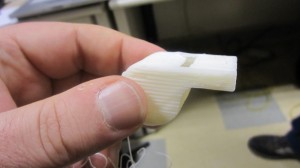Dilbagh Singh, Paul Kirsch, Rao Nadella and Martin Jacobs are all physicians. In 2004 the four men filed a federal false claims action (whistleblower suit) against two other doctors and Bradford Regional Medical Center. The whistleblowers claimed that the hospital had purchased a nuclear camera that it neither needed nor ever took into its possession. Instead, it leased the camera to two other physicians.
In a complex scheme, those doctors then referred patients to medical center for unnecessary tests and ultimately received kickbacks. Both the hospital and two doctors profited from the scheme. Ultimately Medicare picked up the tab for the unnecessary tests.
Medicare rules and federal law prevents kickback arrangements between doctors and hospitals. Doctors should be ordering tests and performing medical procedures because they are medically necessary, not because of kickbacks.
After the four doctors filed the suit, the government launched their own investigation. Whistleblower suits brought under the False Claims Act are filed by private whistleblowers but in the name of the government. After a lengthy investigation, the government declined to intervene.
For most whistleblowers, the case is over if the government fails to intervene. Well over 90% of whistleblower cases are ultimately dismissed if the government isn’t interested. That wasn’t the case with these whistleblowers – they decided to pursue the case on their own.
Six years after the case was filed, a federal judge in Pittsburgh ruled that the kickback scheme was illegal. When it looked like the four men were going to win, the government changed its mind and asked to take over the case. Ultimately, the hospital settled for $2.75 million. The False Claims Act allows for triple damages but the government permitted the hospital to pay a reduced amount.
Reduced settlements are often seen when the wrongdoer is a nonprofit such as Bradford Regional Medical Center. When fines against nonprofits are too high, the patients and community suffer.
The case is still pending against the two physicians alleged to be involved in the kickback scheme. According to published reports, prosecutors have announced a tentative deal although the terms have not been released.
It took 10 years from the filing of the complaint to a point where the entire case may finally be over. Was it worth it? Absolutely.
Medicare fraud costs taxpayers billions each year. It is especially appalling that a nonprofit hospital would falsely bill Medicare when millions of hard working Americans are struggling to afford healthcare. Part of the reason healthcare is so expensive, of course, is rampant Medicare fraud.
Medicare fraud occurs when a hospital, physician, pharmacy or other healthcare provider bills for unnecessary services, performs unneeded diagnostic tests or inflates bills for services. Because Medicare is funded with taxpayer dollars, both the patients and public loses.
Whistleblowers that step forward and report fraud or abuse involving tax dollars are entitled to an award of up to 30% of whatever the government collects. Some whistleblowers come forward seeking the large rewards while others are simply tired of seeing greed and corruption.
If you have original source information about healthcare or Medicare fraud, give us a call. Let an experienced whistleblower lawyer evaluate your case. We have represented many whistleblowers and presently have one of the largest whistleblower cases pending in the United States, HUD’s $2.4 billion case against Allied Home Mortgage.
For more information, contact attorney Brian Mahany at or by telephone at (direct).
Mahany & Ertl – America’s Whistleblower Lawyers. Services provided in most jurisdictions.
(whistleblower photo courtesy of Dave Winer – scripting news)


